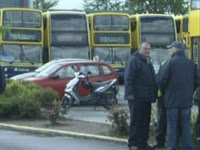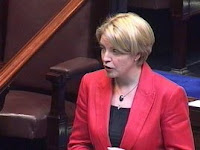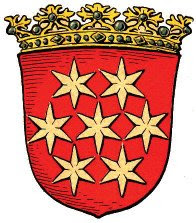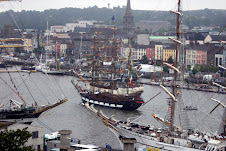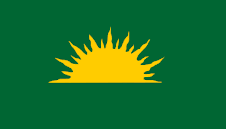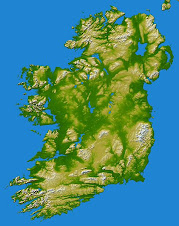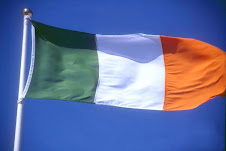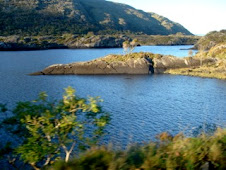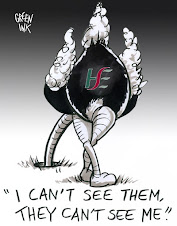Today the Central Bank of Ireland has stated that "the number of people in personal debt is growing rapidly", and that this is being "driven by mortgage borrowings".
At an Oireachtas Committee meeting in Leinster House this morning John Kelly, the Head of Statistics at the Central Bank, declared that "the number of people in debt in Ireland is rising faster than in any other Eurozone country".
According to Mr. Kelly "the number of people in mortgage debt is three times higher in Ireland, compared to other countries in the Eurozone". He also said that the large number of mortgage holders on variable or tracker rates is positive.
Separately, the number of people presenting themselves at the offices of the Money Advice Budgeting Service (MABS) has increased substantially since 2006.
Ann Marie O'Connor of MABS told the Oireachtas Committee that the amount of debt people are in who attend the service is also increasing. She said that her organisation was also concerned about the tactics of some debt collection agencies.
Mary O'Dea from the Irish Financial Services Regulatory Authority said a code was now in place to offer some protection for people in mortgage arrears. But this code was criticised as not going far enough by the representatives from the Free Legal Advice Centre.
What does all this information tell us?
Well, it presents us - the people of Ireland - with the blunt and uncomfortable truth that we (or at least the majority of us) have been living well beyond our means during the years of the false economic boom dubbed the 'Celtic Tiger', which was - as we now know - nothing but an artificial bubble, created by irresponsible politicians and greedy bankers, property developers, builders and estate agents.
As much as our collective anger is now directed at these people (and with all justification), we have to accept the fact that most of us were not innocent victims of the greedy buggers in suits. The vast majority of Irish people was only too willing to go along, up the metaphorical garden path, leaving all common sense and responsible behaviour behind.
We were carried away by the idea that we - little and long-suffering Ireland that was always poor and exploited by others - had now at long last found the legendary pot of gold at the end of the rainbow. We were rich, really rich, we thought.
And instead of being happy with that and building a nice nest egg for an even better future, we fell collectively for the many temptations a bunch of criminals and gamblers put in front of us.
People on modest incomes, who had been happy living in a normal house, driving a normal car and going on holiday once a year, felt 'entitled' to have a lot more. So they bought a bigger house, or even two. Some even acquired an additional apartment abroad, in places like Spain, Portugal or even Bulgaria. The latter is a country without proper political structures and widely controlled by the local version of the Mafia, a group of gangs recruited mostly from the former Communist security service (Bulgaria's version of the KGB).
How on Earth would anyone even think of buying property in such a place?!
But Irish people did. Quite a lot of them, in fact. They also 'needed' a new and much larger car, preferably one of the most polluting and environmentally unfriendly four-wheel-drives known here by their American name SUV (Sports Utility Vehicle).
And not enough with that, they also had to go on exotic foreign holidays several times a year, and to keep up with the Jones' also on additional luxurious 'city breaks' to various continental places over the weekends.
And if there was not enough money in the bank to pay for all this, then they used their various credit cards. The bank would always offer more loans, new cards and many 'lucrative refinancing packages' if someone got really strapped for cash.
There is an old saying that a fool and his money are easily parted. Ireland is the living proof that this phrase is still correct.
It gives me no pleasure to say this, but the Irish have now been exposed to the whole world as a careless and feckless wannabee nation, made up of irresponsible and greedy fools, gangsters, fraudsters and drunken yahoos.
Some of us - for example David McWilliams, George Lee, a few other people with common sense and even yours truly - warned of the consequences of the financial madness and wrote page after page and column after column, but to no avail.
We were called "spoilsports", "party poopers" and "eternal pessimists" by the punch-drunk financial criminals, and completely ignored by most of the 'ordinary' people.
And even now, that the metaphorical cat is well out of the bag, there are thousands of fools in this country who cannot or will not see and accept reality. Unfortunately this group is led by our government, the worst bunch of wasters and incompetents ever assembled in the history of the state. And since ignorance still rules the roost, things will get much worse throughout this year, next year, and perhaps for many more years to come.
There is only one way Ireland can regain strength and stability: We need a new government, urgently, and a reform of our political and electoral system. Everything else will follow from that. As long as we keep the current lot and our completely broken 19th century system in place, nothing we do and no remedy we offer the economy will be of any use.
The Emerald Islander
At an Oireachtas Committee meeting in Leinster House this morning John Kelly, the Head of Statistics at the Central Bank, declared that "the number of people in debt in Ireland is rising faster than in any other Eurozone country".
According to Mr. Kelly "the number of people in mortgage debt is three times higher in Ireland, compared to other countries in the Eurozone". He also said that the large number of mortgage holders on variable or tracker rates is positive.
Separately, the number of people presenting themselves at the offices of the Money Advice Budgeting Service (MABS) has increased substantially since 2006.
Ann Marie O'Connor of MABS told the Oireachtas Committee that the amount of debt people are in who attend the service is also increasing. She said that her organisation was also concerned about the tactics of some debt collection agencies.
Mary O'Dea from the Irish Financial Services Regulatory Authority said a code was now in place to offer some protection for people in mortgage arrears. But this code was criticised as not going far enough by the representatives from the Free Legal Advice Centre.
What does all this information tell us?
Well, it presents us - the people of Ireland - with the blunt and uncomfortable truth that we (or at least the majority of us) have been living well beyond our means during the years of the false economic boom dubbed the 'Celtic Tiger', which was - as we now know - nothing but an artificial bubble, created by irresponsible politicians and greedy bankers, property developers, builders and estate agents.
As much as our collective anger is now directed at these people (and with all justification), we have to accept the fact that most of us were not innocent victims of the greedy buggers in suits. The vast majority of Irish people was only too willing to go along, up the metaphorical garden path, leaving all common sense and responsible behaviour behind.
We were carried away by the idea that we - little and long-suffering Ireland that was always poor and exploited by others - had now at long last found the legendary pot of gold at the end of the rainbow. We were rich, really rich, we thought.
And instead of being happy with that and building a nice nest egg for an even better future, we fell collectively for the many temptations a bunch of criminals and gamblers put in front of us.
People on modest incomes, who had been happy living in a normal house, driving a normal car and going on holiday once a year, felt 'entitled' to have a lot more. So they bought a bigger house, or even two. Some even acquired an additional apartment abroad, in places like Spain, Portugal or even Bulgaria. The latter is a country without proper political structures and widely controlled by the local version of the Mafia, a group of gangs recruited mostly from the former Communist security service (Bulgaria's version of the KGB).
How on Earth would anyone even think of buying property in such a place?!
But Irish people did. Quite a lot of them, in fact. They also 'needed' a new and much larger car, preferably one of the most polluting and environmentally unfriendly four-wheel-drives known here by their American name SUV (Sports Utility Vehicle).
And not enough with that, they also had to go on exotic foreign holidays several times a year, and to keep up with the Jones' also on additional luxurious 'city breaks' to various continental places over the weekends.
And if there was not enough money in the bank to pay for all this, then they used their various credit cards. The bank would always offer more loans, new cards and many 'lucrative refinancing packages' if someone got really strapped for cash.
There is an old saying that a fool and his money are easily parted. Ireland is the living proof that this phrase is still correct.
It gives me no pleasure to say this, but the Irish have now been exposed to the whole world as a careless and feckless wannabee nation, made up of irresponsible and greedy fools, gangsters, fraudsters and drunken yahoos.
Some of us - for example David McWilliams, George Lee, a few other people with common sense and even yours truly - warned of the consequences of the financial madness and wrote page after page and column after column, but to no avail.
We were called "spoilsports", "party poopers" and "eternal pessimists" by the punch-drunk financial criminals, and completely ignored by most of the 'ordinary' people.
And even now, that the metaphorical cat is well out of the bag, there are thousands of fools in this country who cannot or will not see and accept reality. Unfortunately this group is led by our government, the worst bunch of wasters and incompetents ever assembled in the history of the state. And since ignorance still rules the roost, things will get much worse throughout this year, next year, and perhaps for many more years to come.
There is only one way Ireland can regain strength and stability: We need a new government, urgently, and a reform of our political and electoral system. Everything else will follow from that. As long as we keep the current lot and our completely broken 19th century system in place, nothing we do and no remedy we offer the economy will be of any use.
The Emerald Islander
